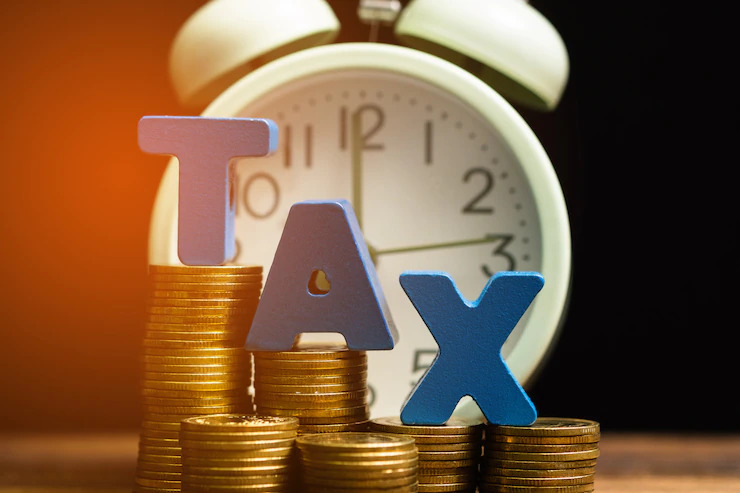INTRODUCTION
In July 2019 the Tax Administration Act, Cap. 438 was amended by the Finance Act, 2019 to establish the Office of the Tax Ombudsman Service. According to section 45 of the Finance Act, 2019 the Office of Tax Ombudsman is responsible for reviewing and addressing any complaint by a taxpayer regarding service, procedural or administrative matters arising in the course of administering tax laws by the authority, the commissioner general or staff of the Tanzania Revenue Authority. Thus, through the publication of the new Regulations, i.e. the Tax Administration (Administration of Tax Ombudsman Service) Regulations, 2022 (Government Notice No. 105 of 2022) and Tax Administration (Tax Ombudsman Service Complaint Procedure) Regulations, 2022 (Government Notice No. 106 of 2022) the Government has set into motion and formally operationalized the Office of the Tax Ombudsman effectively. This Legal update thus, highlights and reviews the new procedural approach toward the handling of tax Complaints through the Office of Tax Ombudsman in Tanzania.
APPOINTMENT OF THE TAX OMBUDSMAN
Section 28B of the Tax Administration Act, Cap. 438, empowers the Minister for Finance to appoint a person with competent knowledge in tax administration matters to be a Tax Ombudsman for a renewable period of three years.
The Tax Ombudsman shall be in charge to carry out the functions of the Office independently and impartially without interference from any institution, agency, or department of the Government or any other person. Tax Ombudsman findings shall directly be submitted to the Minister for Finance as recommendations for the Minister’s deliberations and directives. The decisions or recommendations of the Tax Ombudsman shall not bind a taxpayer whose complaint or matter formed the subject matter of such decision or recommendation.
DUTIES OF TAX OMBUDSMAN
Section 28C of the Tax Administration Act, Cap. 438 provides for the Duties of the Tax Ombudsman to be:
- To review complaints and resolve the same amicably through mediation or reconciliation where necessary;
- To act independently and impartially when reviewing complaints;
- To follow informal, fair and cost[1]effective procedures in resolving complaints;
- To provide taxpayers education on the Tax Ombudsman functions and procedures for making complaints;
- Facilitate access by a taxpayer to dispute resolution processes within the Tanzania Revenue Authority; and
- Identify and review tax administrative issues related to customer service, or procedures and behaviors which impact negatively on taxpayers
LIMITATION OF POWERS OF THE TAX OMBUDSMAN
In Discharging its duties, the Tax Ombudsman is limited and shall not be responsible to do or review the following:
- Review the Legislation or tax policy;
- Review of the Revenue Authority’s policy or practice unless it relates to service, administrative or procedural matter that relates to the administration of tax laws; and
- Review any matter subject to tax objection or appeal save for an administrative matter relating to such tax objection or appeal.
CONFIDENTIALITY REQUIREMENT:
The Tax Administration Act, Cap. 438 puts a mandatory requirement for the Tax Ombudsman and any other person who acts on his behalf is obliged to maintain confidentiality and not to disclose any information received from the taxpayer in the course of performing his duties. However, section 21 of the Tax Administration Act, allows the Tax Ombudsman to access confidential information in the possession of the Revenue Authority relating to the duties and obligations of the Tax Ombudsman duties.
ADMINISTRATION OF TAX OMBUDSMAN SERVICE
The Tax Administration (Administration of Tax Ombudsman Service) Regulations, 2022 (Government Notice No. 105 of 2022) sets the rules in relation to the appointment of staff of the Tax Ombudsman Service and the conduct of the functions of the Tax Ombudsman Office. The regulations also provide for the Code of Conduct to be adhered by the Tax Ombudsman and its Staff and require that each employee to be provided and subscribe to an oath of compliance of the Code of Conduct before assuming the office.
The regulations provide for the procedure for the appointment of the Tax Ombudsman and its staff, who shall be public servants. Accordingly, the Regulations also stipulate the principles to be observed by the Tax ombudsman when performing its duties such as:
- To act objectively and independently
- To observe informal, fair and cost[1]effective procedures in determining the complaints
- Be impartial in safeguarding the interests of the Complainant and that of the Commissioner General
- Maintain confidentiality in respect of the Complaints.
HANDLING TAX COMPLAINTS THROUGH TAX OMBUDSMAN
The new Tax Administration (Tax Ombudsman Service Complaint Procedure) Regulations, 2022 (Government Notice No. 106 of 2022) lays down the necessary procedures for the handling of the tax complaint. According to these regulations, any person who is not satisfied by the services rendered, procedural or administrative matter undertaken by the Commissioner-General or staff of the Revenue Authority in the course of administering a tax law may lodge a complaint to the Tax Ombudsman Service. Indeed, the complaint can be made orally or in writing and can even be electronic.
A Tax complaint may arise from dissatisfaction or a grievance of taxpayer resulting from:-
- non-compliance of procedures or mal-administration by the Revenue Authority in administering tax laws;
- delay in the release of documents or assets seized during the investigations of tax affairs.
- delay in responding to a complaint submitted by a taxpayer; or
- nonresponse of letters or documents sent to the Revenue Authority.
Procedurally, a Complaint must be submitted through lodging of a prescribed form whereby necessary information of the Taxpayer and the complaint must be provided such as:
- name and address of the complainant.
- statement of facts giving rise to the complaint.
- a statement that the Complainant has exhausted the available Revenue Authority internal complaints procedure; and
In addition to that information, the Complainant is also required to enclose necessary evidential information (documents) such as:
- evidence of correspondence with the Revenue Authority; and
- any other documents or information which the complainant deems relevant to the complaint.
The Regulation provides for 90 days from the occurrence of the event giving rise to the complaint as the time limit upon which the Complainant can lodge a complaint to the Tax Ombudsman Service. However, on an exceptional basis and upon giving reasonable grounds of the delay to the satisfaction of the Tax Ombudsman, a Complainant may be permitted to lodge the complaint after the expiry of 90 days.
PRECONDITIONS FOR FILING COMPLAINT TO THE TAX OMBUDSMAN
Before filing a Complaint, the Complainant must fulfill the following preconditions, or else the Tax Ombudsman may not entertain such Complaint altogether. These includes:
- The Complainant must have, made an earlier written representation to the Revenue Authority;
- the Revenue Authority must have rejected the complaint.
- the complainant must have not received any reply within 30 days after the Revenue Authority received his representation/complaint; or
- the complainant is not altogether satisfied with the reply from the Revenue Authority;
HANDLING AND DETERMINING COMPLAINTS
The Regulation vests powers on the Tax Ombudsman to determine upon the complaint Judiciously and amicably through mediation, conciliation, or any other method that the Ombudsman may consider appropriate. Before determining the complaint, the Tax Ombudsman may require the Revenue Authority or any other person to provide certified information or document relating to the subject matter of the complaint but also may require any person to appear before the Ombudsman to testify upon any information.
The Regulation requires the Tax Ombudsman to determine any Complaint within 30 days but also to submit his findings and recommendations to the Minister within 14 days after determining the complaint. The Minister may then upon receipt of the findings and recommendations of the Ombudsman, issue directives to the Revenue Authority accordingly.
It is relevant to note that, the Tax Ombudsman has no direct mandate upon the Revenue Authority, hence the purpose for the Ombudsman to report its decision to the Minister is to enable the Minister who has supervisory and administrative powers over the Revenue Authority to enforce the decision.
CONCLUSION
The Operationalization of the Tax Ombudsman Service by the Government is yet another milestone towards addressing the challenges of doing business in Tanzania. Moreso, it is among the implementation of the Regulatory reforms towards administrative checks and balance of the Revenue Authority whereby, some of the matters arising from tax administration could not be challenged or complained formally through the existing Revenue Appels procedure. The Tax Ombudsman Service is expected to relieve businesses from some of the serious administrative complaints or abuses from the Revenue Authority thus enabling fair and just tax collection but also, ensuring predictable dealings of the Revenue Authority.



